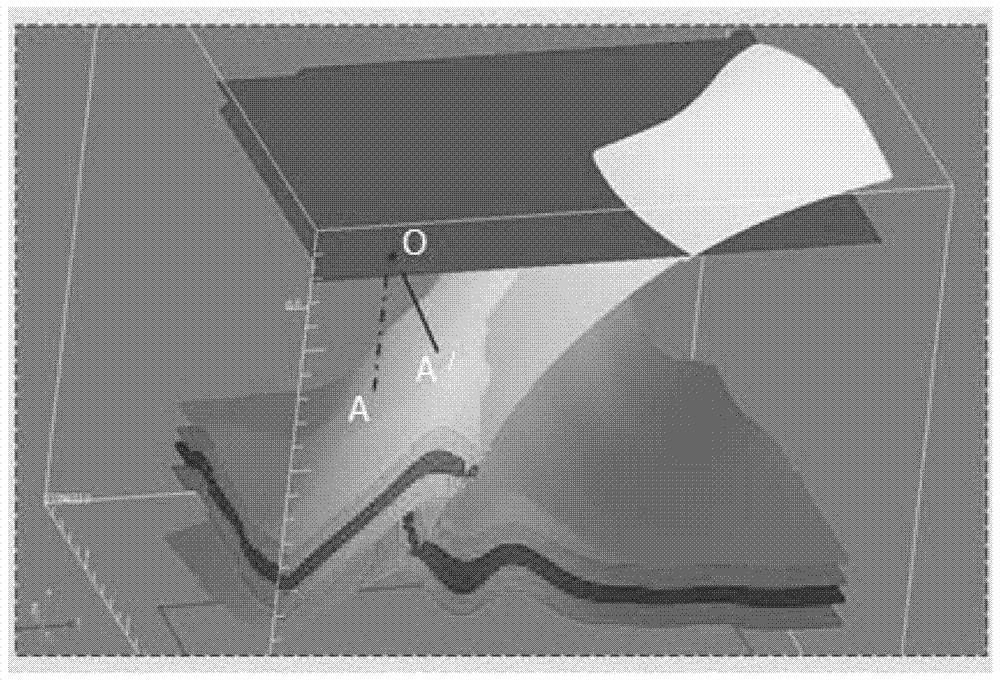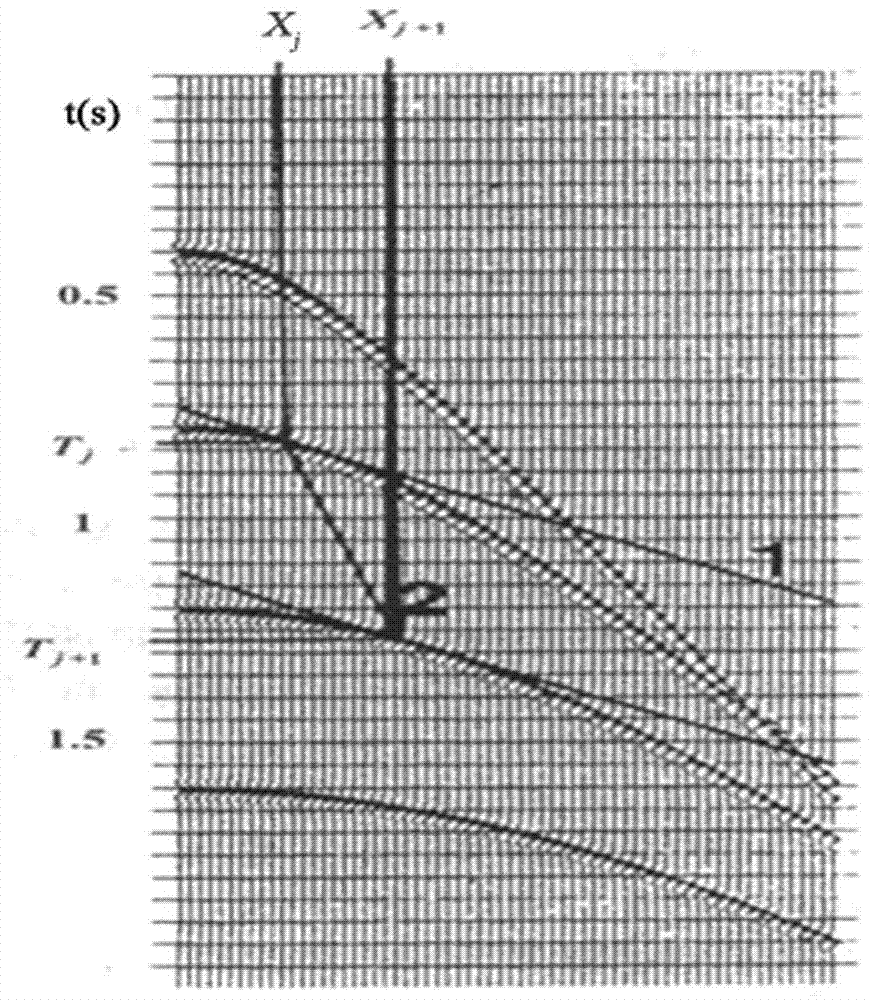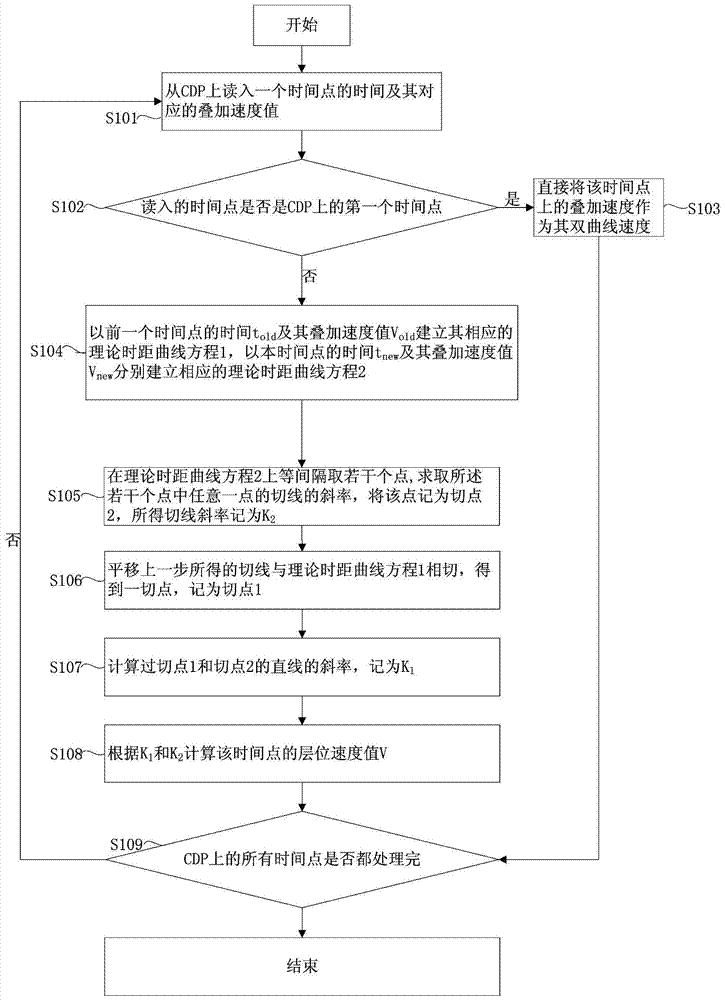A method for three-dimensional space homing of velocity in two-dimensional seismic data
A technology of seismic data and three-dimensional space, which is applied in seismic signal processing and other directions, and can solve problems such as migration and homing of two-dimensional seismic data
- Summary
- Abstract
- Description
- Claims
- Application Information
AI Technical Summary
Problems solved by technology
Method used
Image
Examples
Embodiment Construction
[0016] Hereinafter, the three-dimensional space homing method of velocity in two-dimensional seismic data according to the present invention will be described in detail with reference to the accompanying drawings and exemplary embodiments. It should be noted that, in the present invention, CDP refers to a common depth point gather, and CMP refers to a common midpoint gather. When the reflective layer is approximately horizontal, CDP and CMP can be regarded as the same.
[0017] In the prior art, the horizontal section of two-dimensional seismic data (also referred to as two-dimensional seismic section, horizontal section) always displays the position of the reflection point on the reflection interface on the vertical line below the common center point on the ground. When the formation is a horizontal layered structure, this display mode is in line with the actual situation, but in fact the underground structure is relatively complex (including complex structures of faults, pinc...
PUM
 Login to View More
Login to View More Abstract
Description
Claims
Application Information
 Login to View More
Login to View More - R&D
- Intellectual Property
- Life Sciences
- Materials
- Tech Scout
- Unparalleled Data Quality
- Higher Quality Content
- 60% Fewer Hallucinations
Browse by: Latest US Patents, China's latest patents, Technical Efficacy Thesaurus, Application Domain, Technology Topic, Popular Technical Reports.
© 2025 PatSnap. All rights reserved.Legal|Privacy policy|Modern Slavery Act Transparency Statement|Sitemap|About US| Contact US: help@patsnap.com



